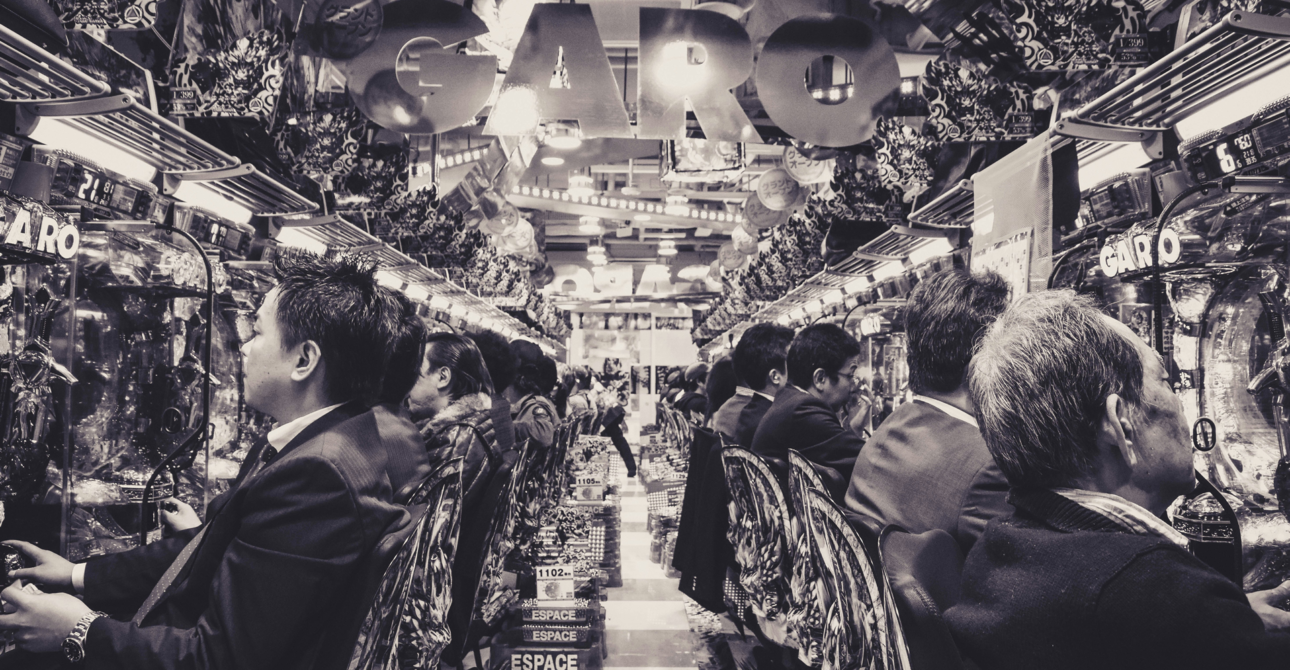You can see that language and culture are reflection of the mind of the people. Mind refers to the perception and value of the people for things. In computer term, you may say mind is OS and language and culture are apps. The secrete of the deep understanding of foreign language will learn the OS […]
Separately use what they say outside from what they think inside
In Japan all gambling, except authorized public organization, is banned. However, no matter where you go, you will find some pachinko parlors near the railway stations. Pachinko is the Japanese version of the slot machine. If the machine gives you a lot of balls, you can exchange them for some goods. Up to this, tit […]
[Blog #7] English Words Change into Japanese Styles
There are many English words used in Japan. So, you may convey your intention by saying only English words. If you pronounce the words in the Japanese way, you will be understood better. English words are pronounced as they sound in Japanese. Longer words are abbreviated. Examples: supper market → su-pa-, department store → depa-to, […]
Is Japan being totalitarian?
In the case, your company is busy and overtime work seems necessary, on this situation most Japanese would follow the instruction of their boss. What do you do? Long time ago most Japanese were agricultural people that the work was done communally. It seems they have built up a sense of solidarity. Their fates were […]
[Blog #6] Japanese and English words are used in daily life
In the past, the Japanese incorporated Chinese words into the Japanese language along with Chinese characters. In modern times, they have incorporated English words. A characteristic of the Japanese people is that they take in cultures and words from other countries, but they coexist with Japanese culture and language. Therefore, in daily life, the old […]
Japanese don’t say a straight No
For instance, a woman attends a meeting wearing some clothes which do not suit her, and she asks members, “How do I look?” Even if members believe the outfit doesn’t look good, they will say like “It’s very distinctive,” or “It’s nice and showy.” Many Japanese will not say the truth as it might hurt […]
[Blog #5] Japanese Alphabet Characters
Japanese characters, which consist of hiragana, katakana, and kanji, is said to be the most complex in the world. In addition to these, there is also romaji as an alphabet auxiliary language. Romaji are phonetic characters like hiragana and katakana, and are used mainly for place names and people names for foreigners. However, Japanese sounds […]
Bowes can have various meanings
Non-Japanese often say that Japanese people bow all the time. Yes, they do in many situations, When they meet someone (greeting), when they express thanks (appreciation), and when they apologize. There are more. When you enter a restaurant, their staff bow you saying,”irashaimase (you are welcome) or when you ask someone to do something. Bowing […]
[Blog #4] The Structure of Japanese Phonics
Japanese has five vowels (a,i,o,e,o) and nine consonants (k,s,t,n,h,m,y,r,w). There are totaling 45 basic sounds consisting of the 5 vowels alone and combinations of the consonants and the vowels. Some consonants have slightly different derivatives, but you don’t have to learn them specifically, as once you get used to the basic sounds, you will easily […]
Return gift practice of Japanese people
When you are invited to a wedding ceremony, it is common that you bring some gift money (say, 1~3 man yen. The amount i depends on your social status or relation), and the couple prepare return gift for the guests in advance. This custom is applied to other important events including funeral ceremony. It is […]

![[Blog #8] Japanese language’s OS differs from English’s](https://wacoy.online/wp-content/uploads/2024/02/nihongo-blog-img-20240228-1290x670.png)

![[Blog #7] English Words Change into Japanese Styles](https://wacoy.online/wp-content/uploads/2024/02/blog-img-20240225-1290x670.png)

![[Blog #6] Japanese and English words are used in daily life](https://wacoy.online/wp-content/uploads/2024/02/nihongo-blog-20240219-1290x670.png)

![[Blog #5] Japanese Alphabet Characters](https://wacoy.online/wp-content/uploads/2023/11/trip-online.jpg)

![[Blog #4] The Structure of Japanese Phonics](https://wacoy.online/wp-content/uploads/2024/02/nihongo-blog-img-4-1290x670.jpg)
